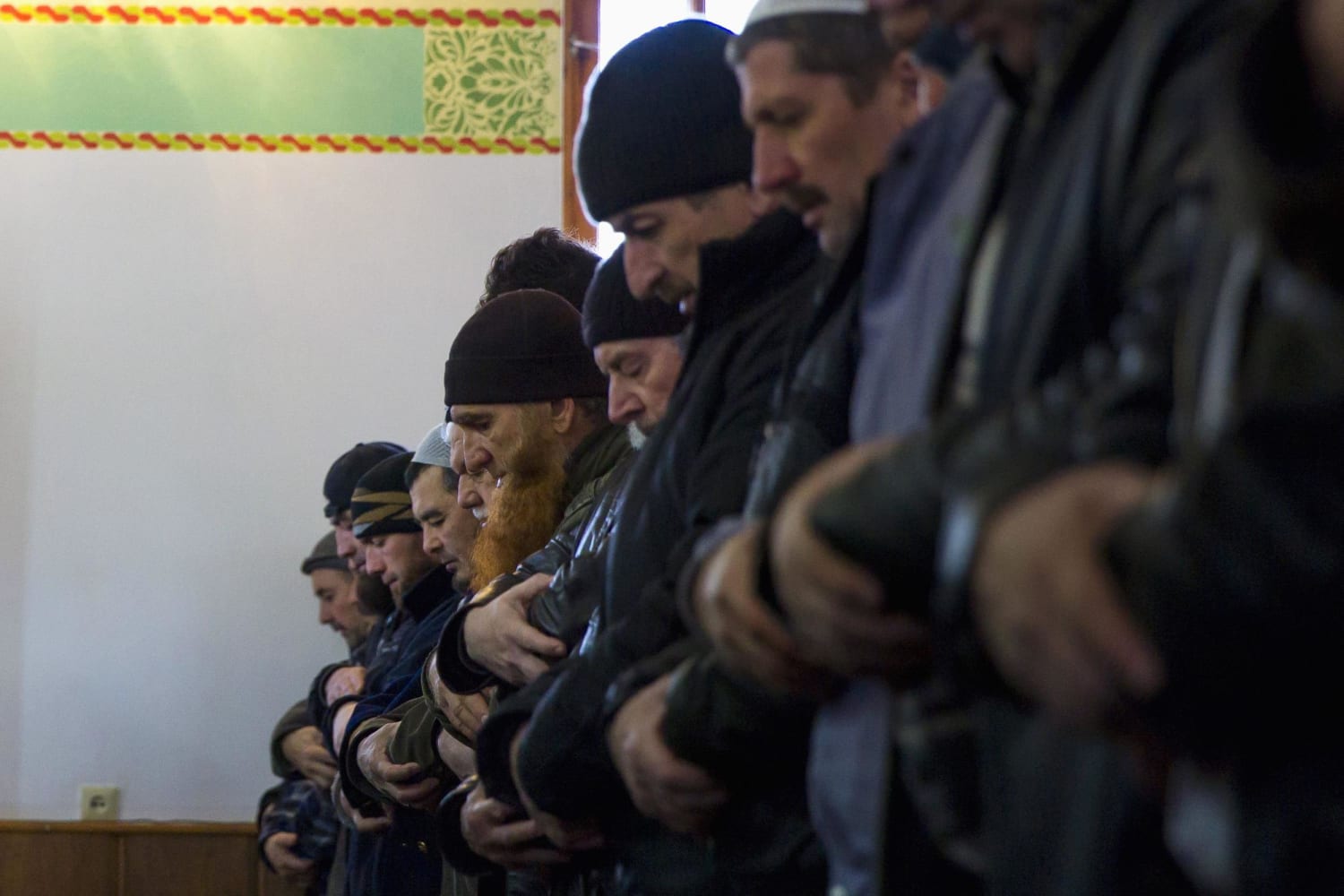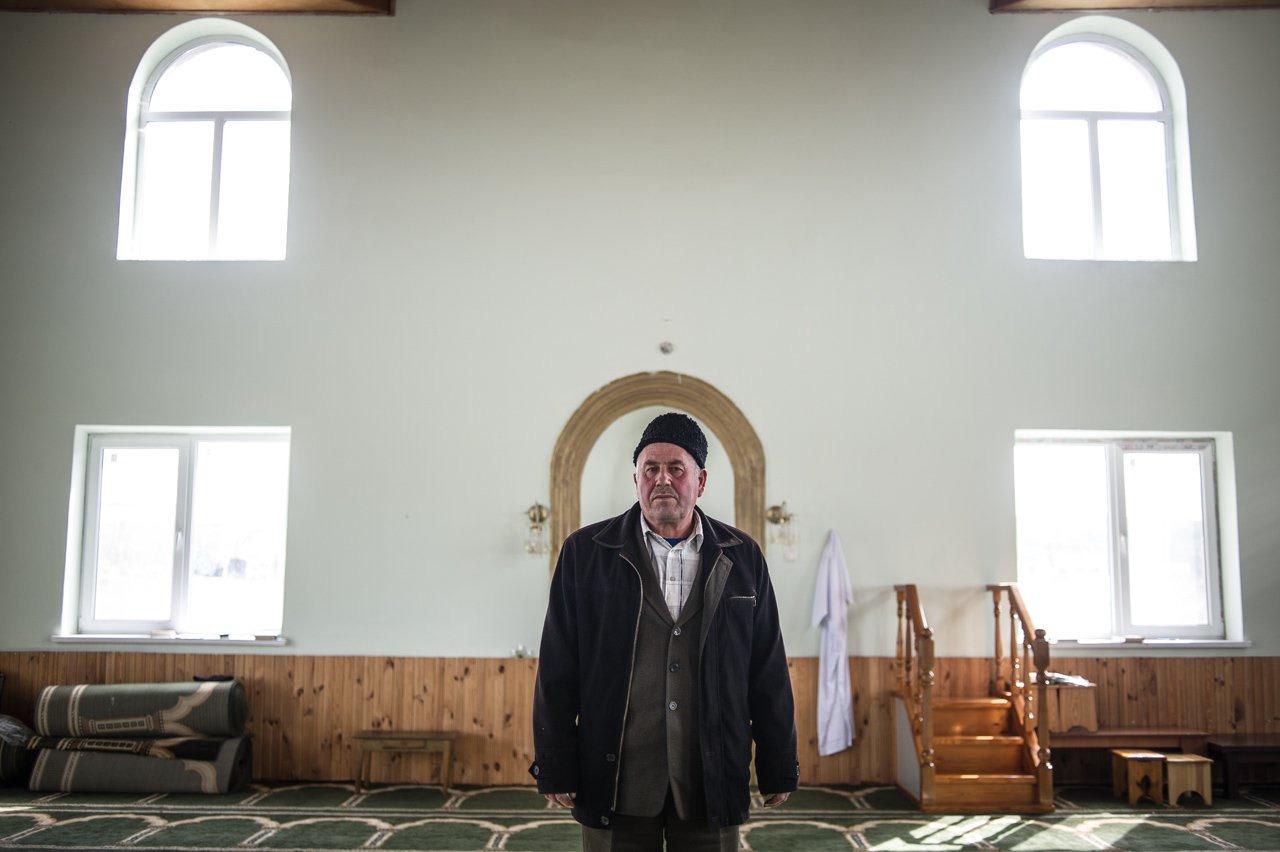
The Tatars, a Turkic ethnic group who make up about 12 percent of the approximately 2 million people in the Crimean Peninsula, are not supporters of the March 16 referendum to align closer to Russia.
The speaker of the Tatar National Assembly, Refat Chubarov, has gone so far as to call for a boycott of the referendum, which he said, “completely ignores the opinion of the peninsula’s native population – the Crimean Tatars.”
Long simmering tensions
While both Russians and Tatars alike speak of coexisting peacefully, the referendum has exposed long-simmering resentment in the Tatar population.The ethnic group was ravaged by Stalinist policies in the 1950s, when millions were deported to remote places like Siberia and Uzbekistan as a form of collective punishment for the group’s alignment with the Nazis during World War II.
When Tatars returned back to Crimea in the 1990s after the collapse of the Soviet Union, they found their homeland firmly in the hands of a new Russian majority and felt stuck in the margins socially, politically and economically.
Many still harbor deep hatred for Russia and are proud to be citizens of an independent Ukraine.
The pro-Russian leaders of the Crimea have spoken out to try to address the Tatars' concerns over the potentially new alignment.
“Russians and Tatars should live peacefully together and stamp out radicalism as the Crimea is our common home,” the peninsula’s newly installed Prime Minister Sergei Aksyonov said after the referendum announcement. “There should be no conflicts as we share a common past and color [the red of the former U.S.S.R.].”
But many Tatars just don’t buy it.
‘We are against separatists’
“For 23 years Tatars and Russians lived in peace here in Crimea,” said Eldar Ibraimov, a local village leader from Ana-Yurt just outside the Crimean capital, Simferopol. “We have learned to live in peace and have mixed interracially by marriage – here Russians and Tatars have learned how to coexist.”Ibraimov fears that if Crimea gets folded back into Russia, his people will be marginalized yet again.
He and other Tatars from around the community went to the Crimean Parliament on Feb. 26 to protest what they felt was blatant pro-Russian separatism by the region’s overwhelmingly ethnic Russian population.
“We went to parliament to express ourselves in a peaceful way,” Ibraimov said. “We wanted it to be known that we are against separatists who play with the map of our land in order to divide it.”
“We need them to know that in another time, not so long ago, what they are doing would have been called treason and they would have been jailed,” he said.
The scuffles that ensued at those protests were followed days later by a Russian military intervention into the Crimea that is still present today around Ukrainian military bases on the peninsula and hidden away in strategic government buildings in the capital.
Since that time, the Tatar National Assembly has called on the Tatar community to stay home and avoid confrontation, but remain vigilant for provocations against them.
In Simferopol and other Crimean communities, pro-Russian self-defense forces have sprouted up, forming units that overtly patrol streets as a show of force and keep an eye out for the ubiquitously cited, but never seen anti-Russian provocateurs.
Tatar self-defense units have also formed, but have noticeably kept a low profile in comparison to their Russian counterparts. That inconspicuousness is by design and fueled equally by a desire to maintain the peace and reduce friction in the Russian-Tatar relationship.

Alexey Furman / NBC News
Yakub Nematulayev is the imam of the mosque in Stroganovka, a Tatar community of about 1,000 families just outside of Simferopol, Ukraine.
The tensions are ‘like a cancer’
Tatar religious leaders – the ethnic group is predominately made up of Sunni Muslims - have also advocated while keeping a low profile.Yakub Nematulayev is the 63-year-old imam of the mosque in Stroganovka, a Tatar community of about 1,000 families just outside Simferopol. At the request of the Tatar National Assembly and local community leaders, his mosque has been regularly watched at night by Tatar self-defense forces since last week’s scuffles.
“Since the troubles began, more and more people from the community have been coming to say they are worried,” said Nematulayev. “Some people come here feeling completely helpless because they don’t know what to do, so we’re telling people to stay calm, stay peaceful.”
To that end, Nematulayev and other leaders have urged Tatars to stay within their own communities and not go to areas with large Russian populations.
“Large groups of Crimean Tatars are not appearing in Simferopol because they know this will provoke clashes with Russian self-defense forces there,” Nematulayev said. “Of course there are some hot heads, so we’re trying to pour cold water on them, trying to get them not to provoke the other side.”
Nematulayev, who came to the Crimea from his birthplace in Tashkent, Uzbekistan, in 1989, fears that the Tatar culture will be eroded further if Crimea joins Russia.
“The tension in the Russian-Tatar relationship is like a cancer, you have it and then it slowly spreads,” he said. “It’s not a matter of one day things got bad, this resentment has been growing and growing until it exploded last week.”
Like Chubarov, the speaker of the Tatar National Assembly, Nematulayev said he and his community will likely not participate in the referendum, saying the vote only represents Russian interests while disenfranchising the Tatar community.
“For 50 years, Crimean Tatars were living in places like Uzbekistan, which was not their homeland, until we were finally allowed to come home after the U.S.S.R. fell,” said Nematulayev. “Now with our population diminished they want to declare Crimea an autonomous Russian region.
“I don’t agree with that at all because then you could start creating Russian autonomous regions in Lithuania, Moldavia, Kazakhstan, everywhere. By creating such autonomies, Russia widens its territory and widens its influence.”
That sentiment was shared by Ibraimov, who now patrols his community with a Tatar self-defense unit.
“Pro-Russian supporters should not be looking at Moscow and St. Petersburg to see how their lives will be under Russia, they should be looking at places like Siberia,” said Ibraimov. “Then probably they’ll change their opinion of reunification.”
NBC News’ Alexey Furman contributed to this report.
No comments:
Post a Comment